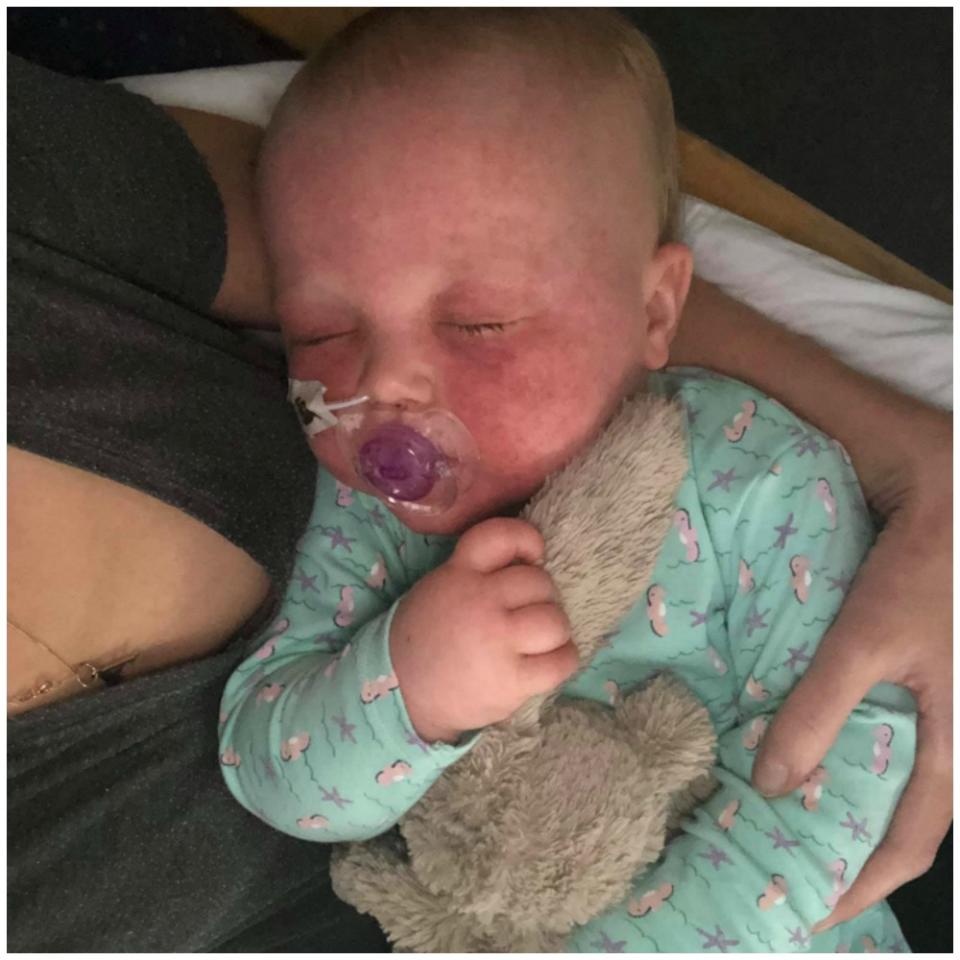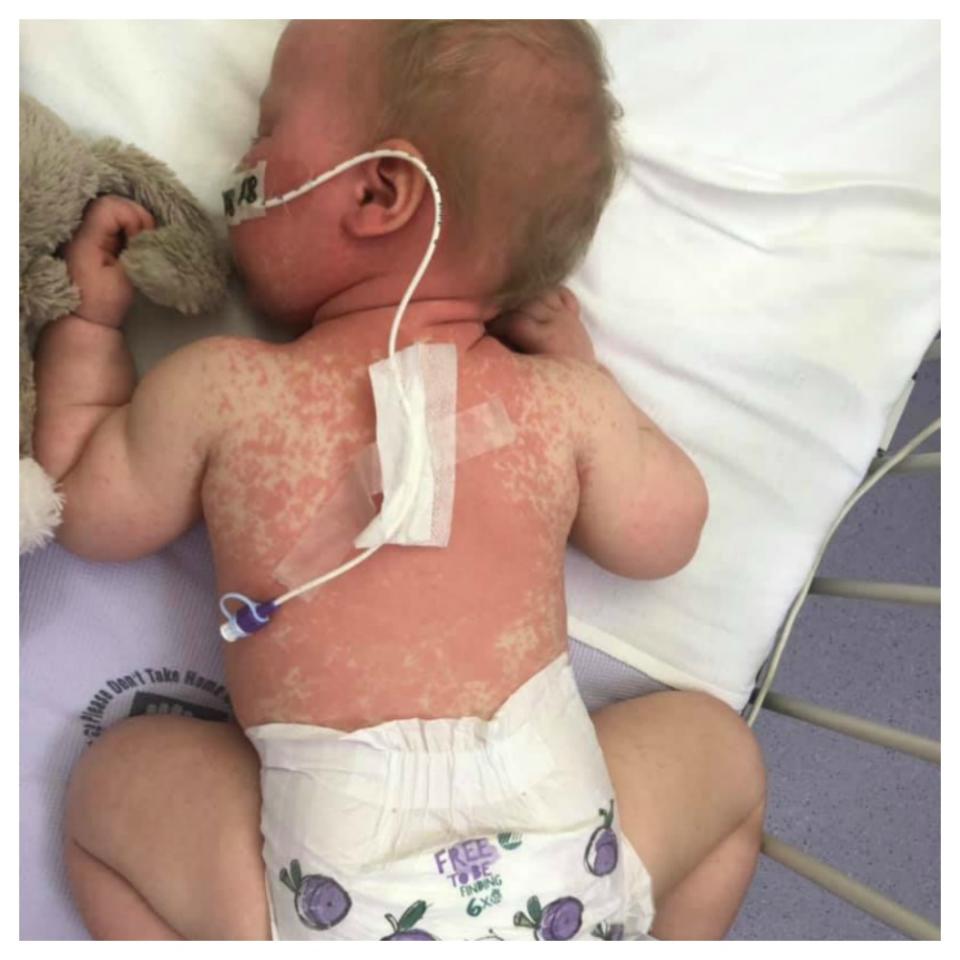Mum urges parents to vaccinate their children, shares photos of her newborn with measles
![A mum is urging other parents to vaccinate their children after her newborn daughter contracted measles [Photo: Facebook]](https://s.yimg.com/ny/api/res/1.2/VkajbcHmk7gB7mdiZVKbjg--/YXBwaWQ9aGlnaGxhbmRlcjt3PTEyNDI7aD0xNjU2/https://media.zenfs.com/en/homerun/feed_manager_auto_publish_494/f2ad8ed4e2f15a53438def911bda8e27)
A mum has shared her daughter’s harrowing experience on Facebook with the aim of encouraging other parents to vaccinate their children.
UK mum Jilly Moss shared photos of her newborn daughter, Alba, who contracted measles. As a result of the condition, her baby was blinded for four days after her eyes swelled, had to be tube fed and put on a drip and ‘pumped full of drugs’.
Read more: Your child’s vaccination schedule
“Posting these heartbreaking images of our beautiful baby girl who contracted measles is extremely difficult,” she wrote. “We are still in hospital eight days after being admitted.”
While Alba was too young to receive the vaccine herself, Jilly, pointed out that if all of the children around her were vaccinated, measles might have been prevented.

“The truth is this all could have been prevented if the protection layer of older kids above Alba had been vaccinated,” she said.
“She was too young for her MMR vaccination when she got sick which meant she has had to fight this killer virus with no immunity,” the mum wrote.
Read more: Italy bans unvaccinated children from attending school


Jilly hopes sharing her daughter’s story raises awareness about a disease that can have devastating consequences.
“Measles is not “just a rash” it can cause blindness, encephalitis and pneumonia,” she says.
“We need to do more people. Get your children vaccinated.”
Fewer UK children being vaccinated
According to experts immunisation is a cost effective and critical element of preventive care around the world – the World Health Organisation (WHO) estimate that it prevents between two and three million deaths each year.
But recent stats have revealed fewer children are being vaccinated against potentially fatal illnesses.
NHS data shows the number of two year olds immunised against measles, mumps and rubella (MMR) fell for the fourth year in a row in 2017-18.
Just over nine in 10 (91.2%) of two-year-olds had had the MMR in 2017-18, down from 92.3% in 2012-13.



